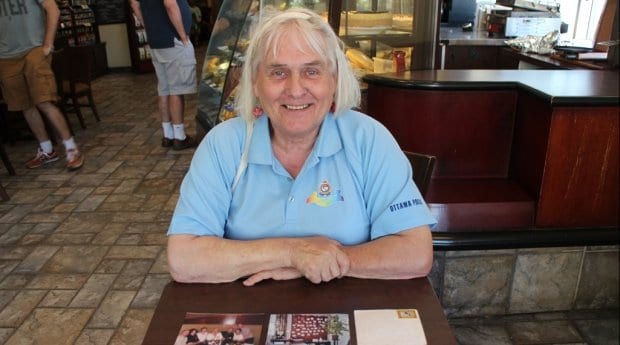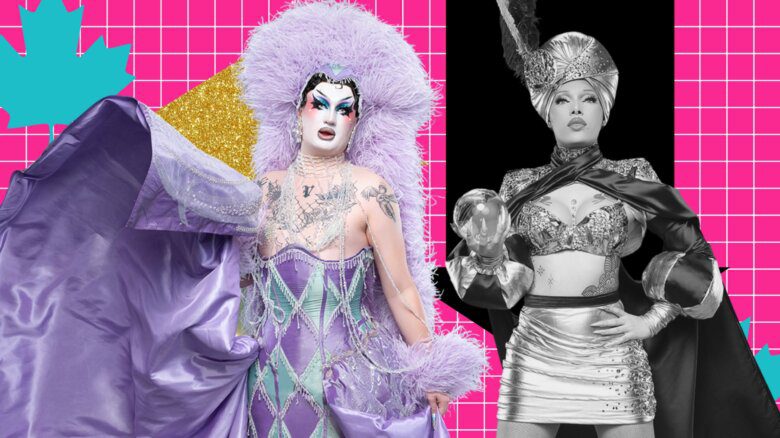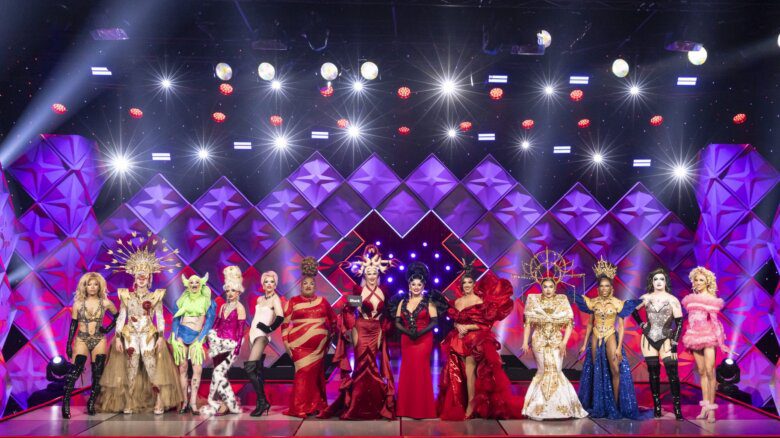Capital Pride is inviting former grand marshals to march in this year’s 30th anniversary parade.
Joanne Law, a former Capital Pride grand marshal, recently sat down with Daily Xtra to discuss Pride memories, her trans activism and the challenges ahead in this edited interview.
Daily Xtra: You were the grand marshal of the Capital Pride parade in 2009. What are your memories of Pride celebrations?
Joanne Law: Awesome. Fun. I was the first trans woman ever to chair a Pride festival in Canada, which is kind of neat. Being a chair is a lot of work — making sure that contracts are signed, making sure that things are in place. Through my time with Pride I’d been a site co-ordinator, parade co-ordinator and the only thing I didn’t do was finances. I learned a lot and I met up with some really, really awesome people, which is the best part. Learning about people, learning about the politics of Pride. It was a lot of fun and a lot of work.
Of all the awards you’ve won for your activism over the years, which one stands out to you?
All of them. Every single one of them is on my wall. I have a “Me Wall.” Seven lifetime achievement awards and 25 awards. Every single award means something to me and I didn’t put them in a drawer. I won an [International Pioneer Award] from the States and I was the first Canadian ever to receive that award. I also received an official stamp with my picture on it.
What do you think of Capital Pride inviting all the former grand marshals to march in this year’s parade?
Awesome, but I think the chairs should be there first because they did all the work in the background. Maybe next year, who knows?
How do you feel about the state of trans rights in Ottawa and Canada?
Provincially, it’s happening across the different provinces, but I’m still not allowed [to use the bathroom] in a federal building. The big thing that’s hit the airwaves is Caitlyn Jenner, but she’s American. She might bring a lot of public attention to [trans] issues, but she’s never been beat up. The gay and lesbian community fought 25, 30 years ago for human rights. We are 25, 30 years still in the background. There’s not enough counsellors, therapists, educators, doctors to help us in our journey and when they do find out about us they want to cure us of our disease. I don’t want to be cured. I’m gender-enhanced. The provincial governments are [making inroads], but not all the provincial governments support us. We still have to fight for our rights. If [Bill C-279] didn’t get through this time, they’ll have to start at the bottom. It’s seven years of the bill and what happens after seven years? It falls off. Not in my lifetime. I’m going to be around for another 20 years and that’s it. I’m tired of fighting. I’m tired of activism. Tired of standing at my podium and preaching what I practice. You get tired and it’s hard. There are younger people who have the energy to stand up and fight.
You’ve said you’re retired, but you’re still volunteering?
I’m a career volunteer. I still volunteer with the [Ottawa Police Service] GLBT liaison committee. I’m an advisor to some of the boards when they say “Joanne, we need your help” and I’ll go to a meeting and give my five cents’ worth.
How important is Pride today?
It’s still needed. Even though we have same-sex marriage, gay people are still abused. You see two gentlemen walking holding hands [and someone will say] “There goes a couple of faggots” or with two women, “There’s some lezbos.” As far as activism goes, we need it.
Is there enough trans inclusivity in Pride?
When I left the [Capital Pride] board, in my resignation letter I said, “I hope you don’t lose the ‘T’.” They’ve lost it. That’s the impression I got with the [recent Velvet Studio] radio interview. My attitude is: If you don’t like what [an organization] is doing, come and help. I’ve always been like that. If it’s not being done right, come and help show what the right way of doing it is. Some people just want to complain and they don’t want to do anything about it.
What does Capital Pride mean to you personally?
Family. Whether you’re in or out of the closet, it’s family. It’s very important to me. I’ve been around for 20 years. You can’t give that up. You built something. You don’t want to see it die.


 Why you can trust Xtra
Why you can trust Xtra


